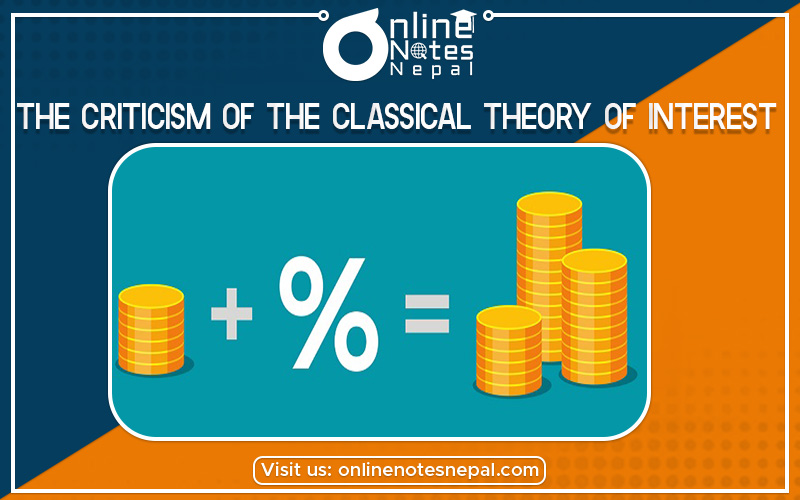Published by: sadikshya
Published date: 06 Jul 2021

The criticism of the classical theory of interest is as follows.
The classical theory of interest is based upon the unrealistic assumption of full employment but in reality, we cannot find full employment is the real world.
According to classical theory equality between saving and investment is the function of investment rate. But J.M Keynes as the equilibrium between saving and investment is not made through the change in the level of income.
This theory assumes that saving and investment are affected by the rate of interest, but saving is affected by the level of income and investment by the profit rate.
These theories ignore the monetary factors in the determination of the rate of interest. According to J.B. Keynes interest is the monetary phenomena interest is paid as a reward for sacrificing the comfort of liquidity or cash money.
This theory is based on the belief that the level of income remains constant but actually levels of income change with agreeing change in investment. Thus this theory is not correct.
Credit money also plays an important role in the supply of money. Therefore credit money should have a role in interest rate determination also, but this theory does not explain the effect of credit money in the supply of capital.
This theory assumptions that saving of capital is done only in the view of population and it is wrong. Thus the theory ignores the consumption loan.